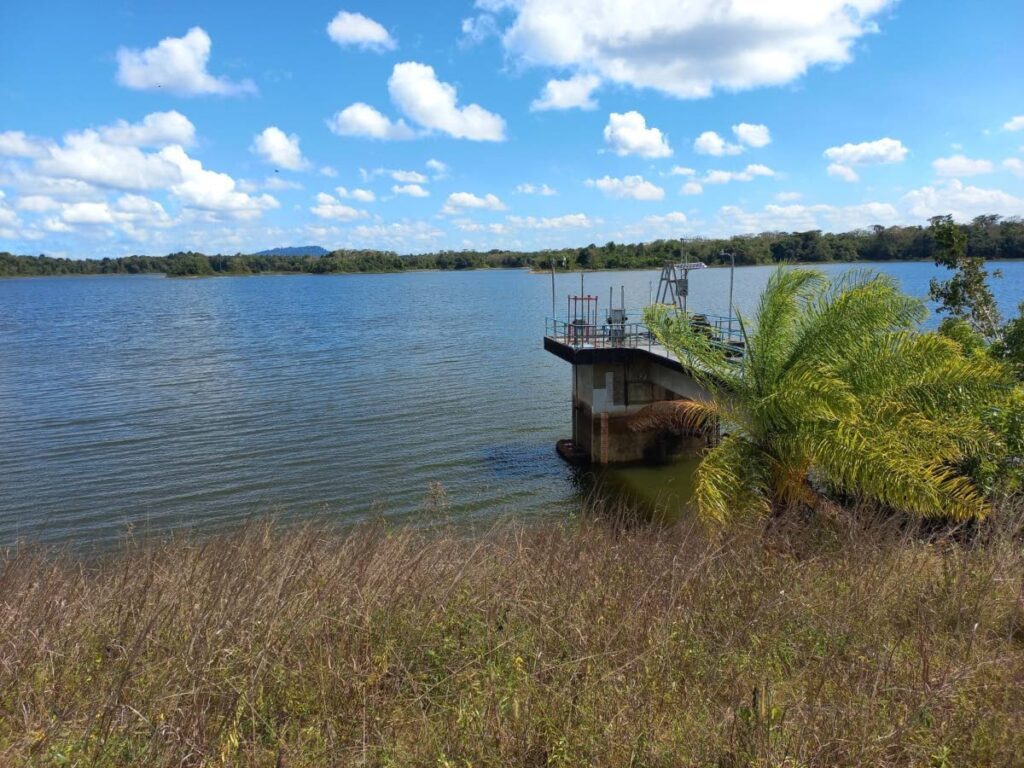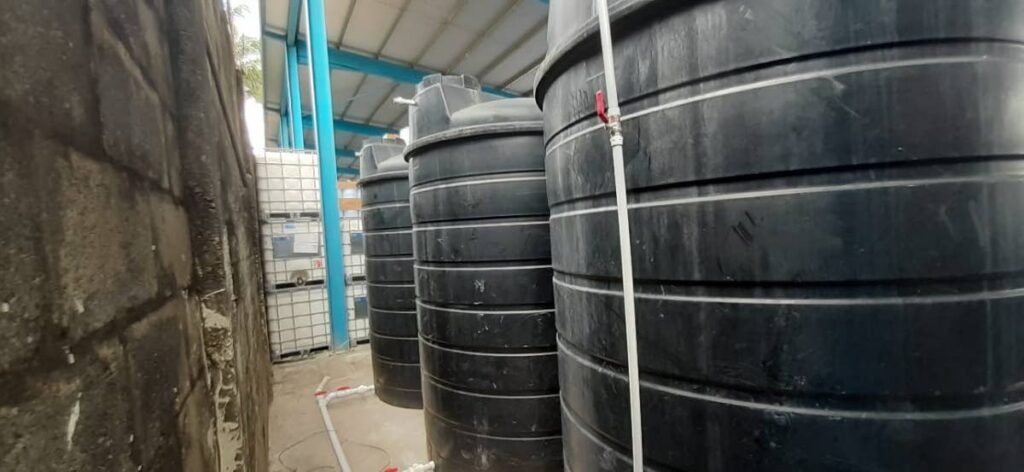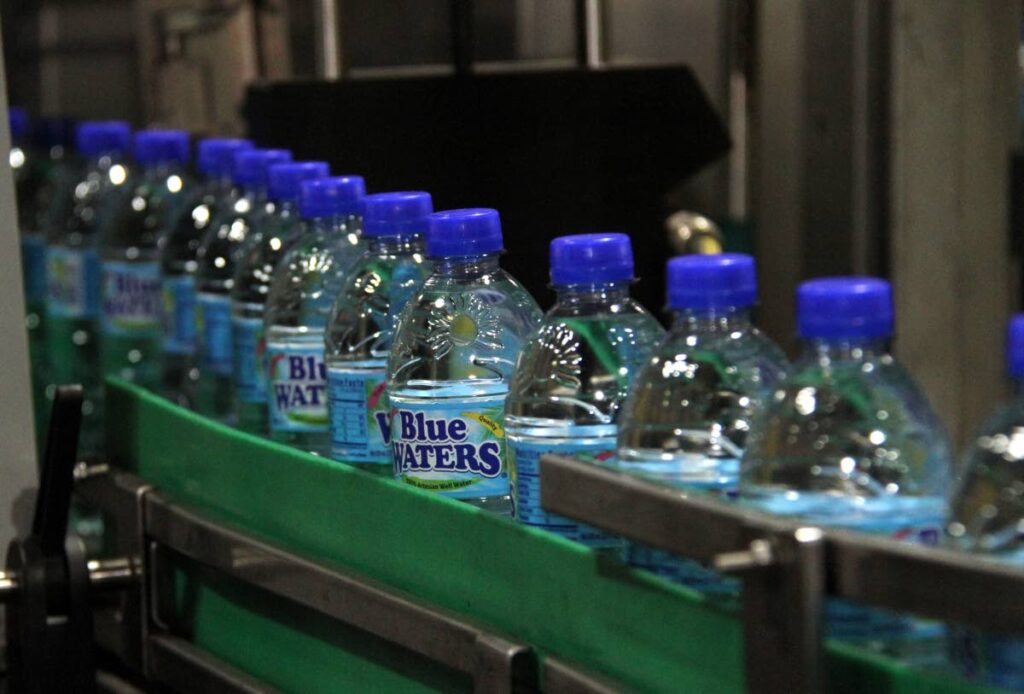Keeping the water level: Businesses, WASA talk water management

Water is a precious resource, needed in everyday life and business operations. However, every year the dry season presents a problem as drier conditions, Sahara dust and high heat affect water levels and rain, thereby limiting water supply.
For many businesses this presents a problem, as cooling systems, beverages and even as a main input in services such as car washes, must grapple with lower water levels.
It also presents a problem for the Water and Sewerage Authority (WASA), which is tasked with supplying the entire nation with sufficient water for crucial everyday use.
This year, high temperatures, massive bouts of Sahara dust and reduced rain have produced a harsh dry season, with the Met Office warning in January of a drier-than-usual first half of the dry season.
With two months left in the dry season, both the public and private sectors have had to come up with interesting ways to manage water usage so that their businesses and the nation as a whole would not be left high and dry.
The hose ban
Each year, WASA imposes restrictions to conserve water during the dry season. This year’s conditions, in no small part attributed to climate change, have made it more necessary for WASA to manage the nation’s water usage.
Daniel Plenty, WASA communications manager, told Business Day the high heat and low rainfall have had a significant effect on water levels, causing WASA to readjust its water schedule for several places, especially in high areas and areas a great distance away from pumping stations.
The authority’s total daily water-production capacity is approximately 243 imperial million gallons per day.
“In keeping with the forecast from the Met Office in relation to the early part of the dry season being particularly dry, that part really did pan out,” he said. “Everyone could attest to that, because we all live here, and the dry season has been particularly dry.”
He said the heat has impacted areas such as water treatment, because the dry conditions and lack of rain meant there was not enough water to keep rivers and reservoirs full. As a result WASA had to adjust the water schedules multiple times during the dry season.
Last Thursday WASA said in a media release that parts of TT would have water supply schedules adjusted once again, amid even lower water levels.
Parts of northeast Trinidad served by the North Oropouche Water Treatment plant saw a reduction in production from 20 million gallons a day (mgd) to 17 mgd
Areas in the southeast and central Trinidad served by the Navet Water Treatment Plant will also be affected by reduced production, from 19 mgd to 16 mgd.
Tobago, served by the Courland, Richmond, Kings Bay and Hillsborough West water treatment plants, will see production reduced from 4.6 mgd to 2.7 mgd.
“The heat, resultant dryness and lack of rainfall throughout the 2024 dry season has caused an average daily loss of production of approximately 25 million mgd,” WASA said. “This represents approximately ten per cent of the authority’s total daily production.”
"As the country continues to cope with the effects of the harsh conditions associated with the 2024 dry season, the authority has been taking the necessary steps to prudently manage the country’s available water resources."
On May 8, WASA issued a statement saying in the next two months it will be adding new water treatment plants, funded by IDB, in Goldsborough and Santa Cruz. This will help increase treatment capacity by 6.5 million gallons a day.

As of midnight on March 5, WASA banned the use of hosepipes, sprinklers, fountains and any similar apparatus for watering private gardens and washing private cars. The ban is expected to be lifted on June 30.
Anyone found in violation of the ban faces a $75 fine. The ban, Plenty said, was one of the several measures taken to ensure the nation had more water throughout the system.
Another measure was a communications campaign with the goal of encouraging customers to use water responsibly and to adhere to the usage restrictions through its 'Value Every Drop.'
For those most affected by the reduced water supply, Plenty said WASA has done its best to supply truck-borne water to areas that would be affected by lower water levels.
However, businesses such as car washes are left in an awkward position, as it restricts the use of one of its more efficient tools, power washers, in a period when there is the highest demand for the service.
Tamika Romero, co-owner of Dan’s Car Wash in Diego Martin, said although the business has been using buckets and barrels to wash cars for its entire ten years of operation, power washers are highly efficient, reducing the time needed to wash cars.
“The pressure washer is very efficient. It gives you a quick run-through and it only takes five minutes,” she said.
While she admitted that the power washer was faster, she was unable to discern how much water it used. Regardless, her business uses buckets and barrels primarily, and hence the hosepipe ban has not affected her.
She said the dry season was her peak period.
“When rain is falling, no one really wants to wash their vehicles,” she said.
During the rainy season, the company comes up with specials that would keep customers coming for a value-added service.
“If you don’t want to wash your vehicle in the rainy season and you see a special – like, let’s say, a buff and polish special, and you know rain can affect your vehicle once it's parked on the outside, you will rush for something like that, because you will want to keep your vehicle protected.”
Another car-wash owner, who did not want to be named, said he is using water-conservation tactics such as filtration systems to reuse water after heavy sediment is taken out.
Responding to comments that power washers may be more efficient and save more water, Plenty said it was more about prioritising the use of the water.
“This isn’t a matter of curtailing operations during the dry season,” he said. “You have to look at what is more important – would you rather have a supply available for critical household usage, or for washing a vehicle?”
Cool runnings
Having a steady supply of water is particularly important to the manufacturing sector. Manufacturers need water for several processes, including the production of final products and for cooling purposes for plants and machinery.
The TT Manufacturers Association (TTMA), in response to questions from Business Day, said regardless of the size of the manufacturer, members of the association are committed to responsible water-management practices. The TTMA said each company uses a combination of proactive planning, investing in infrastructure and adopting sustainable technology to keep its plants and machinery running even in the dry conditions.

One of the key strategies employed by manufacturers is the establishment of tank farms equipped with large storage tanks. Companies string together between 30 and 40 tanks.
“These tanks serve as reservoirs to store water for cooling purposes, allowing companies to maintain uninterrupted operations even when water supply from external sources is limited,” TTMA said.
Manufacturers also implement systems such as closed-loop cooling systems and water recycling systems which optimise water usage while ensuring that heat also dissipates from machines effectively.
“Additionally, some smaller companies in the membership have implemented creative measures such as hooking up their guttering systems to filters to collect rainwater, which can be used as a somewhat distilled water source for cooling in their plants and factories.
"These innovative approaches not only help conserve water but also reduce reliance on external water sources during the dry season.”
TTMA said manufacturers have access to designated lines for water use.
Managing director of Blue Waters Products Dominic Hadeed said businesses in the beverage industry usually have independent wells, thereby limiting the burden on the national water supply.
He added that filtration systems for water companies have also improved, maximising the amount of clean water that can be provided.
“We have the filtration systems where water goes in over and over,” he said. “The filters that we have are very good, such that you have very little reject water.
"Once you have better filters for your systems, you will be able to take out the impurities without rejecting that much water.”
However, he said in St Lucia, water issues affected business.
“Over there, we rely on the municipal supply, and we couldn’t get water,” he said. “We had to ship water from TT to St Lucia to supplement that.”
Regional media sources reported that St Lucia announced water rationing on April 13, in anticipation of extreme conditions.
On April 22 St Lucian water supplier the Water and Sewerage Company Inc. (WASCO) reported significant shortages in several areas.
“Production has significantly decreased at the intakes that supply the island’s north. Raw water catchments at Talvern and Marquis, Babonneau which supply the Hill 20 Treatment Plant have also registered a notable reduction in inflow levels. Production on the southern network has decreased by 50 per cent with some variation in specific areas.”
It said the drop in water availability affected its water treatment processes and so the supply of clean water to St Lucia was constrained.
In TT, while businesses have access to wells and designated lines, the sole aggregator of water is still WASA. TTMA said it is standard procedure for companies to apply for licences for abstraction of water, which is provided through the Water Resources Agency.
The agency’s website says it oversees licences for drilling and constructing private wells, abstracting water from wells, submitting reports and quality analyses and installing flow meters.
Plenty said the stipulations and details of those licences would differ depending on the volume of water being abstracted.

Comments
"Keeping the water level: Businesses, WASA talk water management"